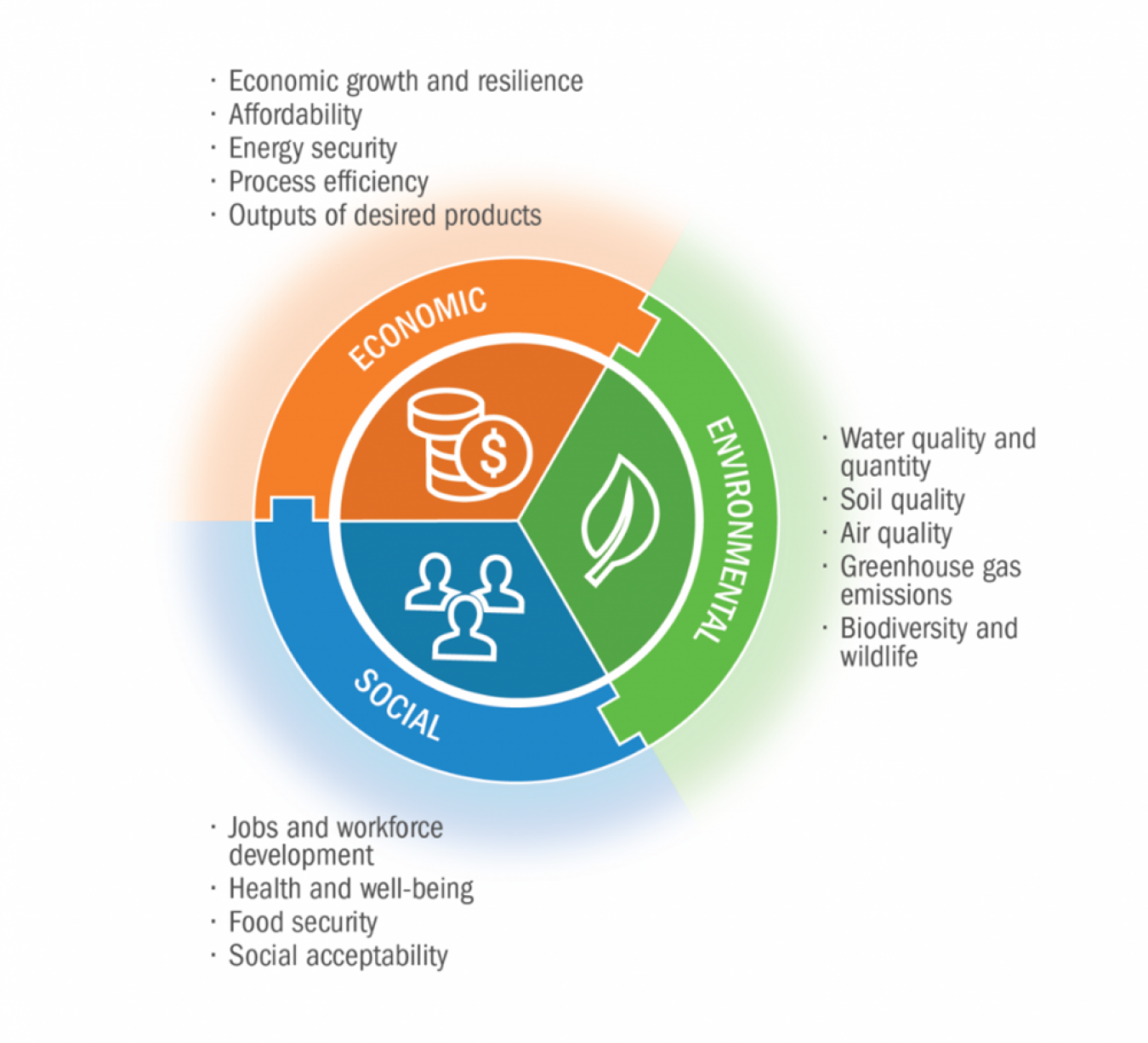The Bioenergy Technologies Office (BETO) focuses on research and development (R&D) to support a thriving bioenergy industry that:
- Supports itself economically
- Protects natural resources
- Enhances positive environmental outcomes.
BETO’s efforts generate scientific knowledge that proactively address issues affecting the scale-up potential, public acceptance, and long-term viability of advanced bioenergy systems.
OUR VISION
BETO is committed to developing and applying scientific approaches to quantify bioenergy and promote continuous improvement across multiple economic and environmental objectives.

BETO considers multiple impact categories to assess bioenergy research activities.
CURRENT OFFICE ACTIVITIES
BETO collaborates with National Laboratories, universities, other federal agencies, and private industry to conduct analysis and R&D to improve the benefits of advanced bioenergy relative to conventional energy systems. Activities are primarily focused in the following areas:
- Economic and Energy Security—Developing tools and methods for assessing and quantifying the potential fuel market impacts and overall economic and energy security benefits associated with biofuels and bioproducts.
- Jobs—Facilitating the growth of bioenergy-related jobs through cost-shared R&D and analyzing the potential for job creation across relevant sectors, including farming, plant operations, scientific research, and product and equipment design.
- Food Security—Advancing technologies to produce bioenergy from residues and wastes and developing landscape management strategies—such as growing energy crops on marginal land—that enable production of biomass without negative impacts to food security.
- Land Use and Productivity—Advancing landscape design approaches that increase biomass production while maintaining or enhancing ecosystem services and food, feed, and fiber production.
- Soil Quality—Developing strategies and tools for producing biomass feedstocks while maintaining or enhancing soil quality.
- Water Quantity and Quality—Assessing the water quantity and quality impacts of bioenergy production and investigating opportunities for bioenergy crops to improve water quality.
- Biodiversity—Investigating relationships between bioenergy crops and biodiversity and engaging with experts to understand and promote practices that consider the needs of wildlife.
- Air Emissions—Analyzing biofuel pathways to quantify progress toward reducing emissions through life cycle tools and other analyses.
COMMITMENT TO CONTINUOUS IMPROVEMENT
Other BETO efforts to continuously improve overall bioenergy impacts are represented below:
- Bioenergy Production Indicators—BETO collaborated with researchers at Oak Ridge National Laboratory to develop a suite of bioenergy indicators to measure and assess environmental and socioeconomic effects along the bioenergy supply chain.
- Online Tools and Data Resources—BETO developed and maintains the Bioenergy Knowledge Discovery Framework (KDF), which provides access to a variety of data sets, publications, and collaboration and mapping tools.
- Global Scientific Dialogues—BETO participates in international dialogues on bioenergy to contribute technical expertise and the U.S. experience. Organizations that BETO engages with include:
- International Energy Agency Bioenergy
- Global Bioenergy Partnership
- Biofuture Platform.

